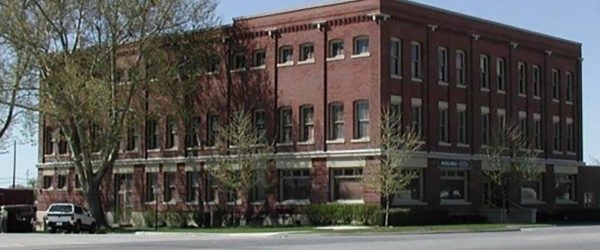From a humble beginning in 1978, the Disability Law Center (DLC) looks much different than it once did. We started with just two employees and a budget of just $55,000. Now, with over 30 employees and an annual budget of $1.9 million, we are the disability law authority in Utah. Though our size and our impact have grown, we’re reminded that our principles and mission have stayed the same. So, how did we get here?
Events

2022
James B. Lee Justice Center
2022
“and Justice for All” partners – DLC, Legal Aid of Salt Lake, and Utah Legal Services – move into the new James B. Lee Justice Center to continue their collaborative efforts to provide high-quality, pro bono legal services to Utahns.

2020
COVID-19
2020
With the onset of a global pandemic in 2020, the DLC undertook a years-long project of virtually monitoring long-term care facilities in the State, where individuals with disabilities were some of the most vulnerable and impacted by COVID-19. That investigation resulted in our report on The Dangers of Institutional Living, which has been used by federal and state agencies and our Public Policy Team to affect change in our long-term care system.

2019
Christensen v. Miner Settled
2019
Christensen v. Miner is settled. Provisions of the settlement ensure that the State will move nearly 300 individuals from ICFs over the course of the settlement, decrease the number of institutional beds in ICFs while ensuring adequacy of the community-based system, providing better education about community-based services to those in ICFs, and improving conditions for those who continue to reside there.

2018
Christensen v. Miner
2018
Filed Christensen v. Miner, class action alleging that Utah operated an unlawful system to keep Intermediate Care Facilities or ICFs (institutions for those with Intellectual and Developmental Disabilities) full and residents did not have a pathway to community-based services.

2017
Class Action Lawsuit with Utah DHS
2017
The DLC settles class action lawsuit with Utah Department of Human Services. The settlement establishes more appropriate time frames for individuals to receive competency restoration services.

2016
The “Home and Community Based Settings Rule”
2016
The DLC publishes the “Home and Community Based Settings Rule: Evaluating Utah’s Transition Process” report to explore findings resulting from a year-long assessment of the State’s efforts to comply with the new settings rule.

2015
Utah State Hospital System’s Failure
2015
The DLC files a class action lawsuit alleging that the Utah state hospital system’s failure to provide incompetent criminal defendants with court-ordered mental health restoration treatment within a reasonable time frame violates their due process rights under the 14th Amendment and the Utah Constitution.
